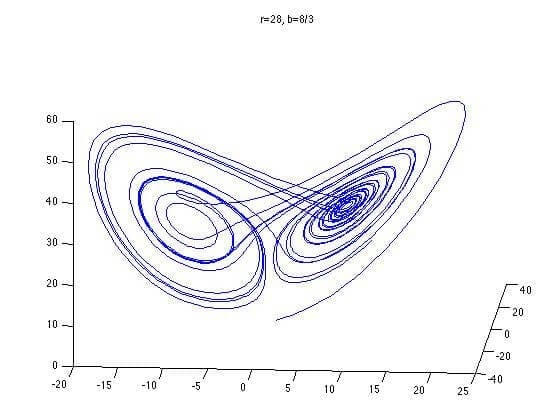CONTACT US
Graphable Receives a National Science Foundation (NSF) CNS Grant
NSF CNS Grant Used to Identify Patterns and Trends to Transform Early Disease Detection & Prevention
There is no denying that the COVID-19 pandemic has led to 2020 feeling like an unpredictable rollercoaster of a year. In all corners of the world, people and global economies have been impacted. Many victims have not only lost their jobs and financial stability, but also their good health and even their lives. However, Graphable seeks to contribute to preventing another large-scale pandemic in the future. The organization successfully applied for and was recently awarded an NSF CNS grant from the National Science Foundation. Centered on utilizing advanced mathematical concepts and applying them to predictive analysis, Graphable will pursue the goal of identifying patterns and trends that happen to be present when looking to detect diseases in their earliest phases, thereby seeking out solutions to prevent them from taking root.
In this endeavor, Graphable will be partnering with the University of South Florida. The goal will be to introduce a new method when analyzing a pandemic’s trajectory by uncovering research information that revolves around self-organizing systems and often obscure, albeit detectable, patterns. Believed an efficacious approach when compared to using contact tracing and other methods to track community spread, Graphable aims to help scientists and medical researchers act with increased timeliness and harness valuable advanced preparation through prediction rather than reaction. The intended results will help in the rapidly integrating information and identifying the biology underneath the disease, controlling spread and fast-tracking toward therapeutics.
Graphable CEO Kyle McNamara states:
We have seen what has happened with COVID that a when a new disease erupts, the ability to quickly detect patterns by finding relationships across research made it difficult to deploy a quick and coherent response to treatment and prevention of the virus. Having scientists read, digest, integrate, and then discuss is simply too slow of a response to a fast-moving pandemic. This has allowed the disease to spread practically uncontrolled. What is needed is a scientific approach that can help scientists connect the dots that are appearing in the research regardless of scientific area. We need to be able to translate early fluctuations in research prior to the outbreak’s explosion into coherent, actionable insights. Being proactive is better than trying to create methods for tracking and finding solutions to an already present problem.
The approach used by the company has been recognized as the first to couple the theory of self-organizing systems with network science—and it leverages groundbreaking Natural Language Processing (NLP) and Machine Learning (ML) on graphs.

Dr. Sylvia Thomas, Associate Professor of Electrical Engineering at the University of South Florida noted Graphable’s partnership in the NSF CNS grant effort:
The Graphable team has proven to be a transformative partner in the NSF CNS Research Grant #2028051 effort to use novel approaches to detect infectious disease occurrences much earlier. Graphable has brought emerging technology solutions and research methods of knowledge graphs, NLP, and ML that have enabled us to analyze research data in ways that weren’t available to us in the past. Graphable’s contributions will allow interdisciplinary researchers to work across a scientific and engineering ecosystem using global Indicators of how underlying pandemic patterns and distribution of outbreaks are formed.
By blending structured, semi-structured, unstructured text in a knowledge graph utilizing sophisticated NLP/ML methods, it is hypothesized that previously obscured patterns will be detectable regarding the early advance of infectious diseases, drugs, diseases, and other relevant issues. Ultimately, Graphable also aims to add the critical dimension of time when discovering a disease’s growth trajectory and attaining intellectual convergence and divergence when assessing connections.
Dr. Pamela McCauley, former NSF I-Corps Program Director and current Associate Dean of Academic Programs at North Carolina State University stated:
We were really excited to fund this project at NSF, particularly since it brought a cutting-edge approach to the critical problem of early detection of infectious disease across the globe, using network science and graph databases. Tracking the way dots are connected over time from scholarly research articles using knowledge graphs to detect the path of the pandemic is a novel concept and much-needed application of innovative scientific knowledge.”
It is expected that the study will be completed over the course of the next year. Long-term expectations are centered on the Graphable team’s goal of introducing the solution as an open-source database that can be used by worldwide stakeholders helping both domestic and international government agencies, including the CDC and the National Institute of Allergy and Infectious Diseases (NIAID). It is believed that if the scientific and medical research community has better tools and early warning detection systems, the risk of future pandemics can be significantly reduced while also protecting countless lives, ensuring global economic stability, and improving outcomes in public health initiatives.
It was an honor for the Graphable team to be awarded an NSF CNS grant. Be on the lookout soon for a full case study of our findings and results.
Check out our use case for a contract tracing graph database.

Still learning? Check out a few of our introductory articles to learn more:
- What is a Graph Database?
- What is Neo4j (Graph Database)?
- What Is Domo (Analytics)?
- What is Hume (GraphAware)?
Additional discovery:
- Hume consulting / Hume (GraphAware) Platform
- Neo4j consulting / Graph database
- Domo consulting / Analytics - BI
We would also be happy to learn more about your current project and share how we might be able to help. Schedule a consultation with us today. We can also discuss pricing on these initial calls, including Neo4j pricing and Domo pricing. We look forward to speaking with you!



